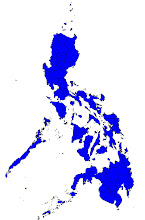http://www.manilatimes.net/index.php/top-stories/11552-jammers-put-2010-polls-in-jeopardy
The Commission on Elections (Comelec) apparently has been caught in a jam by cell phone jammers, electronic devices said to have been imported by certain sectors with malice in mind—sabotage the May 2010 presidential polls.
A cell phone jammer is used for disrupting radio signals between cellular towers and mobile phones (cell phones), preventing transmission of data. In so doing, it temporarily creates a “dead zone” for all cell phone traffic in its immediate vicinity.
If placed near a handset, a cell phone jammer can prevent the phone from getting a signal. If directed at a local cellular antenna tower, it can stop the tower from receiving transmissions from mobile phones throughout a geographical region.
A cell phone jammer is mainly intended for military or government use. It is typically used by the military and the police as well to prevent terrorist attacks by jamming radio equipment used as trigger for improvised explosive devices.
Law enforcers also used the device to disrupt communication during hostage-taking.
In moviehouses, a cell phone jammer is used by theater owners to prevent phone calls from disrupting the show.
Jamming devices were traditionally large antennas mounted on trailers that had to be pulled behind a truck. But now they come in a variety of shapes and sizes including models that are about the size of a cell phone, making them very easy to carry around.
Most of the cellphone jammers have a range of about 50 to 80 feet and will only be able to effectively jam cell phones immediate near them. Stronger jammers, however, can cover buildings, churches and other bigger structures.
Civilians in the United States and Europe are barred from selling and buying signal jammers.
Acting on reports that thousands of jamming devices were brought into the Philippines recently, the National Telecommunications Commissions or NTC banned the purchase, sale and importation of signal jammers to prevent disruptions in the May 2010 elections.
The Comelec earlier said that it received information that at least 5,000 cell phone jammers or subscriber identification module (SIM) blockers were shipped into the country recently.
During the May 10 polls, it will be using GSM network radio signals, the same signals that drive cell phones, to transmit election results from precincts across the country.




No comments:
Post a Comment